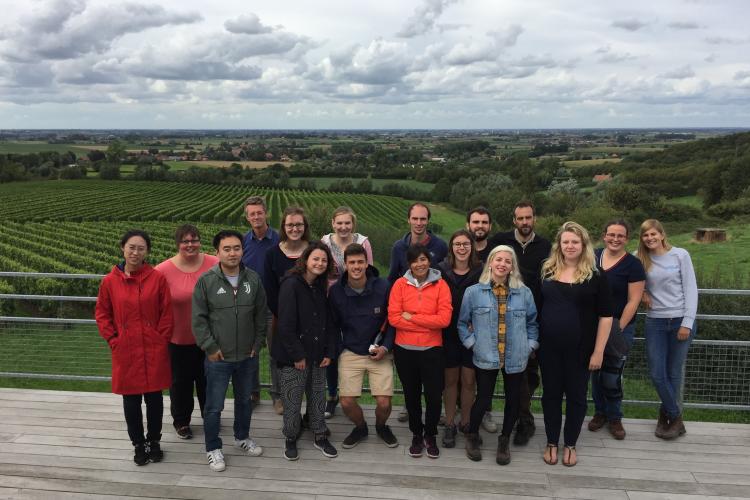Large-scale identification of secondary metabolites, metabolic pathways and their genes in the model tree poplar.
Poplar is an important woody biomass crop and at the same time the model of choice for molecular research in trees. Although there is steady progress in resolving the functions of unknown genes, the identities of most secondary metabolites in poplar remain unknown. The lack of metabolite identities in experimental systems is a true gap in information content, and impedes obtaining deep insight into the complex biology of living systems.
Wout Boerjan wins Marcus Wallenberg prize for research on lignin
The Marcus Wallenberg Foundation announced today that it is awarding the annual Marcus Wallenberg Prize to Professor Wout Boerjan of the VIB-UGent Center for Plant Systems Biology.
Relevance of lignin research for a more sustainable society
Plants use sunlight and water to capture CO2 from the atmosphere to build their biomass. That biomass can then be converted to products that are nowadays made from fossil resources such as petroleum. Whereas the use of fossil resources leads to a net increase of CO2 into the atmosphere (e.g. when burning it as fuel), this is not the case when using plant biomass. For this reason, plant biomass is considered a renewable, carbon-neutral resource.
Translational research in bio-energy crops
A major objective of the group is to demonstrate, in field trials, that the improved biomass processing efficiency of the engineered, greenhouse-grown biomass crops is maintained when plants are grown in the field. This is especially relevant for poplar, as trees are harvested in winter when leaves have been shed and the wood formation program has ended. But also for maize, plants grown in the field are phenotypically very different from those grown in the greenhouse due to the very different environment.
Systematic identification of secondary metabolite structures in Arabidopsis and biomass crops
A main bottleneck in our gene discovery studies is that the identity of most metabolites is unknown. We can only understand the response to pathway perturbations, when we know the identity of the differentially accumulating compounds, e.g. in reverse genetics studies where we aim at identifying the substrate for an enzyme.
Bioactive phenylpropanoids
A second plausible cause of the observed phenotypic consequences of lignin-modified plants is the differential accumulation of soluble bioactive phenolics in the lignin-modified plants compared to the wild type.
Altering the structure of lignin by engineering monolignol substitutes
In addition to engineering lignin structure by using genes of the host plant itself (modification of H/G/S/benzodioxanes/aldehydes/ferulates levels; Chanoca et al., 2019), it is also possible to engineer easily degradable lignin polymers by using genes from other taxa in a synthetic biology approach, as discussed in Vanholme et al. (2012).
Overcoming the yield penalty of lignin-modified plants
Engineering plants for reduced lignin amount or altered structure is often associated with a yield penalty. Several hypotheses have been put forward to explain the molecular basis of the yield penalty. It has been shown that lignin modification often results in a collapse of vessels, which negatively affects water and nutrient transport in the plant.
